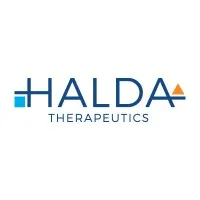
Halda Therapeutics Doses First Patient in Phase 1/2 Clinical Trial of HLD-0915 for Metastatic Castration-Resistant Prostate Cancer
Halda Therapeutics, a clinical-stage biotechnology company focused on developing a novel class of cancer therapies known as RIPTAC™ (Regulated Induced Proximity Targeting Chimeras) therapeutics, has announced a major milestone in its drug development efforts. The company reported that the first patient has been dosed in its first-in-human Phase 1/2 clinical trial (NCT06800313) designed to evaluate the safety and tolerability of HLD-0915 in the treatment of metastatic castration-resistant prostate cancer (mCRPC). This marks a significant step forward in the pursuit of innovative therapies for patients facing this challenging and often treatment-resistant form of prostate cancer.

Christian Schade, President and Chief Executive Officer of Halda Therapeutics, expressed enthusiasm about the study’s initiation, stating, “We are very pleased to have initiated the clinical evaluation of HLD-0915 to address the unmet needs of cancer patients with mCRPC. Initiation of this study marks a significant step in advancing our novel small molecule RIPTAC modality as an important new approach for the treatment of cancer.” The company remains committed to pushing forward innovative treatment strategies that leverage its proprietary platform.
Overview of the Phase 1/2 Clinical Trial
The Phase 1/2 study is an open-label, multi-center clinical trial designed to rigorously assess the safety, tolerability, pharmacokinetics (PK), pharmacodynamics (PD), and anti-tumor activity of HLD-0915. The investigational drug is being administered orally as a single-agent therapy to patients diagnosed with mCRPC. Given the aggressive nature of this form of prostate cancer and the limited treatment options available, Halda Therapeutics hopes that HLD-0915 will provide meaningful clinical benefits to affected individuals.
The clinical trial will be conducted in two key stages:
- Phase 1: Dose Escalation Study – This portion of the trial aims to determine the maximum tolerated dose (MTD) and/or recommended dose(s) for expansion (RDE) of HLD-0915 when administered as monotherapy. Patients will receive incremental doses of the drug to assess its safety profile and establish appropriate dosage parameters for further testing.
- Phase 2: Expansion Cohort – Once the optimal dosage is determined, a larger cohort of patients will be enrolled in this phase to evaluate the drug’s efficacy and further assess safety parameters. The primary objective will be to measure key clinical outcomes, including tumor response rates, disease progression, and overall survival.
The trial is expected to enroll up to 80 patients across multiple clinical sites. By conducting this study in a real-world clinical setting, Halda Therapeutics aims to gather robust data on the potential impact of HLD-0915 on prostate cancer treatment outcomes.
Understanding mCRPC and the Need for New Therapies
Metastatic castration-resistant prostate cancer (mCRPC) is an advanced and aggressive form of prostate cancer that no longer responds to standard androgen deprivation therapy (ADT). Despite initial responsiveness to hormone-targeting treatments, many patients eventually develop resistance, leading to disease progression. Once prostate cancer reaches this stage, it spreads to distant organs, significantly worsening patient prognosis and survival rates.
The current standard of care for mCRPC includes second-generation androgen receptor inhibitors, chemotherapy, and, in some cases, radiopharmaceuticals. However, these treatments are often associated with limited efficacy, significant side effects, and eventual resistance. Given these challenges, there is a pressing need for new therapeutic approaches that can improve patient outcomes.
Halda Therapeutics’ RIPTAC™ technology represents a novel strategy in cancer treatment, leveraging small molecules to create targeted interactions that selectively eliminate cancer cells while sparing healthy tissues. By utilizing this platform, HLD-0915 has the potential to offer a more effective and precise treatment for patients suffering from mCRPC.
The Mechanism of Action of HLD-0915
HLD-0915 is based on Halda Therapeutics’ proprietary RIPTAC™ (Regulated Induced Proximity Targeting Chimeras) platform, a cutting-edge approach in targeted cancer therapy. The RIPTAC™ modality works by inducing proximity between a tumor-specific protein and an essential cellular protein, leading to selective degradation of cancer cells. This mechanism differentiates it from traditional therapies, which often target either the androgen receptor or other common oncogenic pathways directly. Instead, HLD-0915 is designed to be highly selective, reducing off-target effects and potential toxicities.
By targeting a unique set of molecular interactions, HLD-0915 may overcome common resistance mechanisms seen in mCRPC, potentially offering patients a new line of defense against disease progression.
Significance of the Study for the Oncology Community
The initiation of the Phase 1/2 trial of HLD-0915 represents a crucial milestone not just for Halda Therapeutics but for the broader oncology research community. If successful, this study could pave the way for a new class of cancer therapies capable of addressing previously untreatable disease states.
The study’s design, incorporating a thorough evaluation of pharmacokinetics, pharmacodynamics, safety, and anti-tumor activity, will provide critical insights into how RIPTAC™-based therapies can be applied in clinical practice. Given that mCRPC remains a significant cause of cancer-related mortality worldwide, any advancement in this area holds the potential to benefit thousands of patients.
Moreover, the trial results could have implications beyond prostate cancer. If the RIPTAC™ platform proves effective in mCRPC, it could be explored for treating other solid tumors with similar resistance mechanisms. This expands the therapeutic potential of Halda Therapeutics’ research efforts, reinforcing the importance of this clinical trial.
Future Outlook and Next Steps
As Halda Therapeutics progresses with this Phase 1/2 study, the company will continue to monitor patient responses, safety data, and early efficacy signals. The insights gained from this trial will guide subsequent clinical development stages, including potential Phase 3 studies and regulatory discussions with the U.S. Food and Drug Administration (FDA) and other global regulatory bodies.
If the results from this trial are positive, Halda Therapeutics may explore combination therapies with existing mCRPC treatments or expand the use of HLD-0915 to additional cancer indications. Additionally, the company could pursue strategic partnerships to further accelerate the development and commercialization of its RIPTAC™-based therapies




